3.1 Establish challenging learning goals
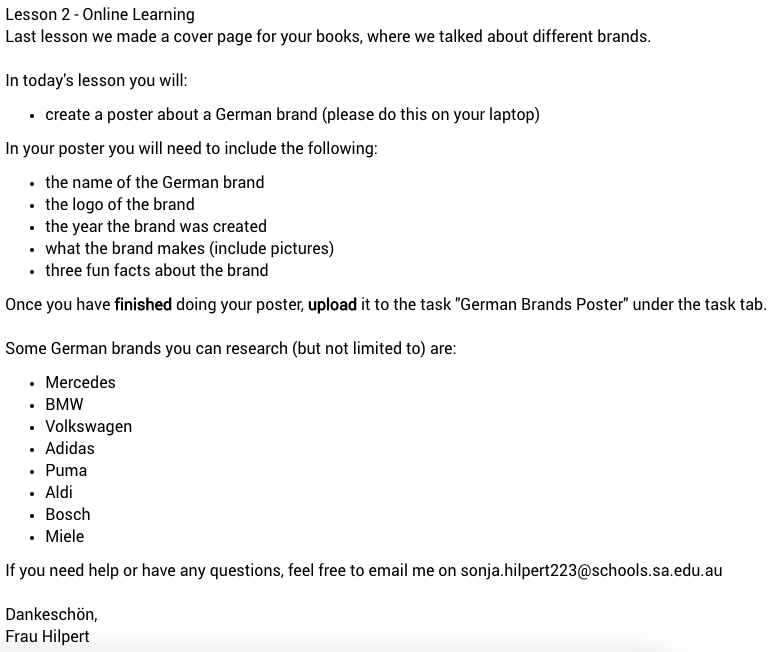
Learning intention for year 7 German on Daymap
For my classes, I will post class notes on Daymap outlining what the class is aiming to achieve in the lesson. This was particularly important whilst students were learning from home as there was a school closure due to COVID. This lesson outline was for my year 7 German class. In the Daymap post, I state what they did last lesson, what they need to include in their task, and where they must upload it. The learning intention for this lesson was to know some German brands and improve vocabulary.
3.2 Plan, structure and sequence learning programs
Year 7 German carousel unit
For the year 7 language program, there is a carousel, where students get a taster of all of the languages offered at the school. This is the term-long unit for the German language that was created with the final research task in mind. The unit includes all the vocabulary that students need to succeed in their research task, and is structured in a sequence of lessons, which makes sense to students and teachers to teach this way.
3.3 Use teaching strategies
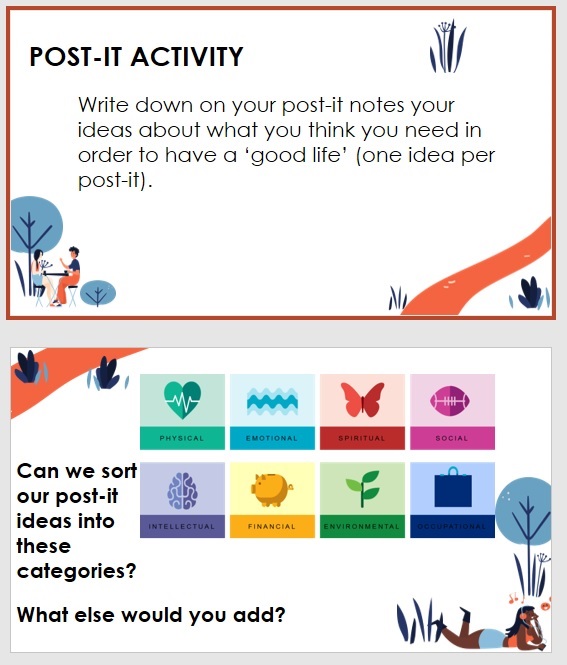
Year 10 Geography (Human Wellbeing) hook activity
For my year 10 I&S class, we looked at Human Wellbeing as a Geography topic. These two slides are a hook into the unit, and were a way for me to gauge students’ prior knowledge on the topic. This hook was successful as students were eager to discuss why their ideas of a ‘good life’ fit under certain categories, or even multiple categories.
3.4 Select and use resources
Year 11 German (IBDP) reading comprehension
For my year 11 German (IBDP) class, I have had to build up the resources from scratch. It is highly encouraged from the IB that teachers use authentic texts to teach the German language. I found a German news website (logo! – die Kindernachrichten des ZDF), which is aimed at children in Germany that explains various issues or topics through podcasts, videos and written texts (i.e. blogs). I found that the level of these texts are appropriate for my students and I was able to find certain texts that fit into the topic I needed to teach. In order to make these texts into reading comprehension tasks, as seen below, I simply wrote some comprehension questions to go with the text.
3.5 Use effective classroom communication
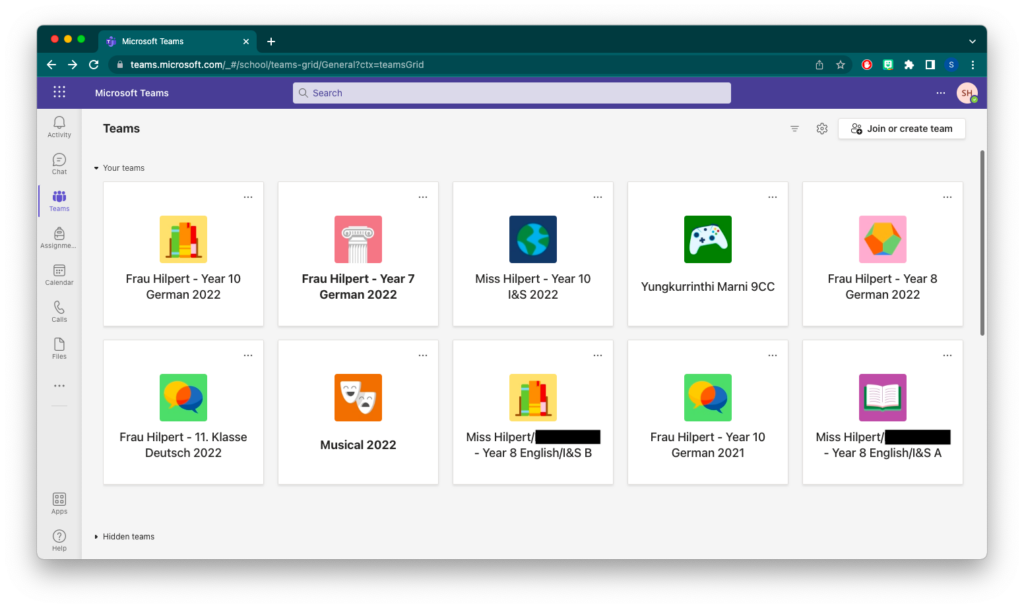
Different classes on Teams for online learning
Whilst teaching online due to COVID, not only did I have posts on Daymap, I also had Teams set up for all of my classes so that I could hold meetings in order to communicate with them what was expected verbally. I would often be online for a Teams meeting for the first half hour of the lesson, and then would stay online for them via chat if they needed to ask me any questions, so I could quickly start another call or answer questions through the chat function if they needed me to.
When in the classroom, I always greet students by name as they enter my classroom and ask how they are going to create a safe, positive and respectful learning environment.
3.6 Evaluate and improve teaching programs
Initial email organising the History and Languages IDU meeting & improvements to the task that were discussed in the meeting
As part of the year 10 I&S curriculum, students need to study World War II, and since the three languages that are taught at Roma Mitchell Secondary College were involved during WWII, the HASS, English and LOTE curriculum coordinator thought it would be a good idea to do an Interdisciplinary unit between I&S and Languages. The unit was originally written in 2021, which we ran with half of the year 10 cohort but it needed to be improved for 2022. I organised a time with the curriculum coordinator to have this meeting with all teachers who were involved so that we could improve the IDU with the QBC data that was given the year before. During the meeting we updated the task (yellow highlight) from the previous year’s task (green highlight), along with the statement of inquiry and other things. The meeting was really successful and everyone seemed eager to deliver the unit.
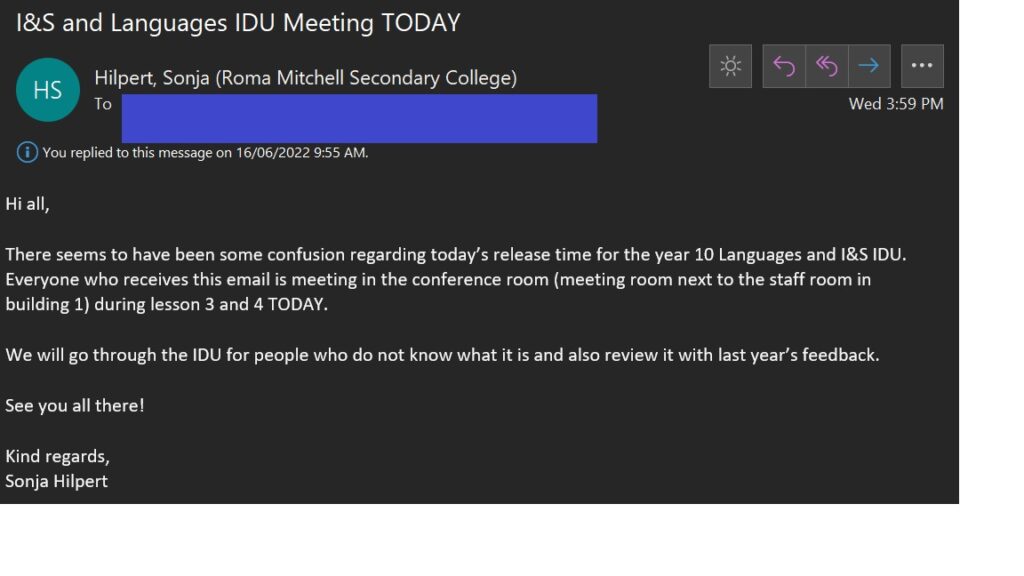
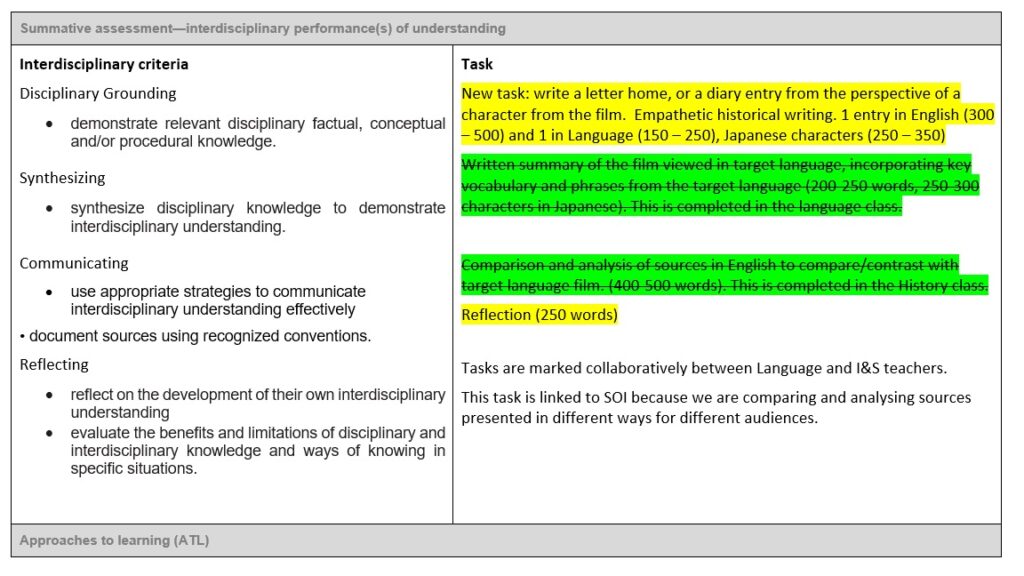
3.7 Engage parents / carers in the educative process

Email to parent about an upcoming test
In my year 9 (then year 10) German class, I had a student who struggled with their mental health, had some learning difficulties, and had trouble coming to school on time in the mornings. This student would often come to class around recess time, which meant that when I usually ran tests, they would come to school too late. I called mum about this one day to let her know about an upcoming test in an attempt to get the student to arrive on time. This was successful, and mum was grateful that I contacted her about this. We also agreed that, in future, it would be best for me to email her to let he know about upcoming tests.